Chemistry
Sign up for our newsletter
We summarize the week's scientific breakthroughs every Thursday.
-
 Climate
ClimateCapturing methane from the air would slow global warming. Can it be done?
Removing methane from the atmosphere requires different technology from removing carbon dioxide. Scientists are taking on the challenge.
-
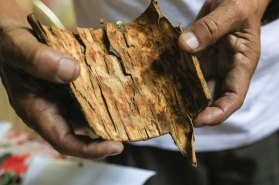 Chemistry
Chemistry‘Most Delicious Poison’ explores how toxins rule our world
In his debut book, Noah Whiteman tours through chemistry, evolution and world history to understand toxins and how we’ve come to use them.
-
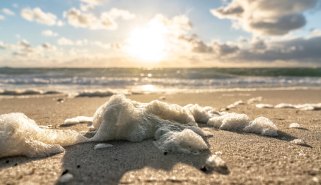 Physics
PhysicsLight, not just heat, might spur water to evaporate
In experiments, light shining on water as much as doubled the evaporation rate expected from heat alone, hinting at a never-before-seen effect.
-
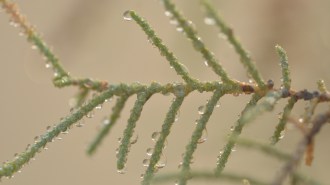 Plants
PlantsSalty sweat helps one desert plant stay hydrated
The Athel tamarisk excretes excess salt through its leaves. The buildup of salt crystals pulls water directly from the air, a study reports.
-
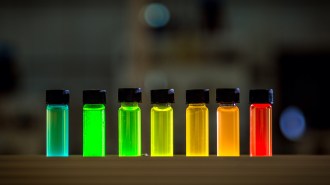 Chemistry
ChemistryThe development of quantum dots wins the 2023 Nobel prize in chemistry
Moungi Bawendi, Louis Brus and Alexei Ekimov split the prize for their work in creating nanoparticles whose properties depend on their size.
By Carolyn Gramling and Tina Hesman Saey -
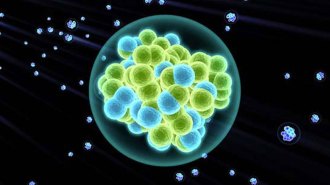 Chemistry
Chemistry50 years ago, the quest for superheavy elements was just getting started
In the 1970s, scientists were on the hunt for superheavy elements. They’ve since found more than a dozen and are searching for more.
-
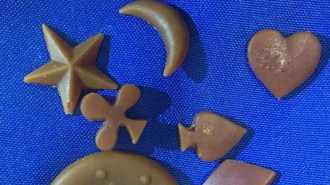 Chemistry
ChemistryChemists turned plastic waste into tiny bars of soap
Researchers developed a process to turn plastic waste into surfactants, the key ingredients in dozens of products, including soap.
-
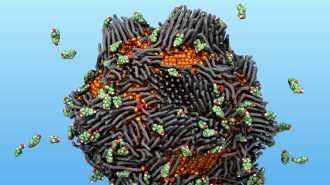 Chemistry
ChemistryMagnetic ‘rusty’ nanoparticles pull estrogen out of water
Iron oxide particles adorned with “sticky” molecules trap estrogen in water, possibly limiting the hormone’s harmful effects on aquatic life.
By Skyler Ware -
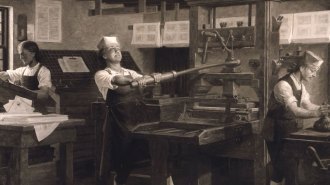 Chemistry
ChemistryHow Benjamin Franklin fought money counterfeiters
Researchers are confirming some of the techniques that Benjamin Franklin and his associates used to help early American paper currency succeed.
-
 Chemistry
ChemistryTear-resistant rubbery materials could pave the way for tougher tires
Adding easy-to-break molecular connectors surprisingly makes materials harder to tear and could one day reduce microplastic pollution from car tires.
By Skyler Ware -
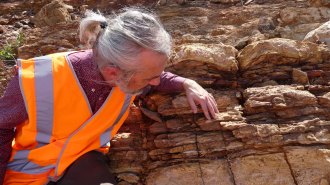 Life
Life1.6-billion-year-old steroid fossils hint at a lost world of microbial life
Molecular fossils suggest the existence of a lost world of primitive eukaryotes that dominated aquatic ecosystems from at least 1.6 billion to 0.8 billion years ago.
By Soumya Sagar -
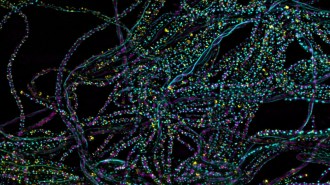 Chemistry
ChemistryOne photon is all it takes to kick off photosynthesis
A single particle of light is the spark that begins the process of turning light to chemical energy in photosynthetic bacteria, a new study confirms.